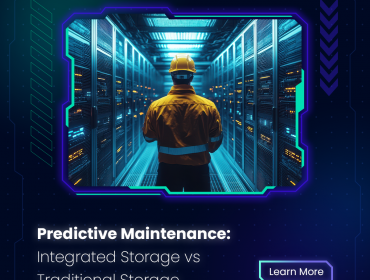Cloud computing and setting up a cloud infrastructure is now second nature to businesses processing huge amount of data. There are majorly 4 types of Cloud computing: Private, Public, Hybrid and Multi Cloud. Business requirements and the nature of business decides which Cloud facility to avail. Companies that are highly dependent on technology are IT and Consultancy in which the nature of business is IT driven and they often have the capacity to avail Private Cloud facility. Similarly, startups prefer Hybrid Cloud access to regulate the data. Public Cloud is often a substitute provided by government agencies to public.
The major concern here is the level of security that the facility can provide which clearly rules out the Public Cloud option. Often companies with small and mid-scale operations choose Hybrid Cloud as plausible due to flexibility of the delivery options and reasonable security, which can be customized basis the needs of the organization.
The critical question then arrives is which Cloud approach to choose. There are various factors that enterprises should consider while choosing a Cloud facility. Below is the comparison of advantages and disadvantages associated with these solutions when it comes to cost effectiveness, maintenance, manageability, dependability, and security of choosing Public or Hybrid Cloud options.
- Cost Effectiveness: When a company decides to set up a Cloud facility, the cost factor remains the basic common denominator. Large corporates either build or purchase Private Cloud infrastructure, whereas companies dealing with smaller resources often prefer Hybrid Cloud facility due to range of facilities and customized cost options. Costs pertaining to data transfer, integration requires costing flexibility. One can decide basis the quantum of data to be stored. In contrast Public Cloud services are much more flexible in terms of cost. In totality cost is highly dependent on the organizational needs.
- Maintenance of Cloud facility: While deploying Cloud infrastructure, maintenance is something that needs to be taken care of by default. In Public Cloud, often the provider takes care of the maintenance of the Cloud infrastructure. Hybrid on the other hand has an interesting mix of tools, customized to the needs of the business. Therefore, to maintain it is simpler when compared to Private or Multi Cloud approach.
- Manageability: Being open ended in nature, Public Cloud solutions are highly easy to access and are manageable as data related resources can be allocated at any given time. Hybrid Cloud on the other hand needs to be customized first basis the enterprise requirements. Resources can be selected and then managed accordingly basis the increase or decrease in the data and resource demands.
- Dependency: Public Cloud provides access to a plethora of services and is made up of highly secured and large server networks as the workload managed is high. Therefore, the accountability of the service provider increases to minimize errors and breaches. That is opposite to Private networks which operate with users with restricted access due to security reasons. A Hybrid Cloud approach is a mix of both which can be customized basis the security requirements and customized data storage options basis the sensitivity of the data.
- Security: Security is set to be the highest when Private Cloud infrastructure is chosen as the ownership and the entire control is in the hands of the enterprise of the cloud as the service provider offers customized solutions that tends to be more secured. In contrast, Public Cloud infrastructure is easily accessible to larger masses, is low on cost, but has limited security options and is highly vulnerable to breaches. Hybrid format is much more feasible and lets the user decide the best possible options and services in terms of all the aspects of data deployment.
Thus, it is important to consider the advantages and disadvantages of the cloud models available at the company’s disposal and to be aware that enterprises might avail the cloud services either in part or full capacity basis their dependency on the traditional storage models. Many people rely on applications that are not easily transferable and there isn’t any added advantage to move to cloud. Then the right focus should be making data application flexible and understand the cloud interface to deploy data in a manner that is useful to the enterprise. As the future of businesses is largely cloud driven, transitioning to cloud can be an option that companies should consider, while maintaining a physical data center for now. In the future even the Cloud infrastructure will evolve and strengthen itself enough so that companies can rely upon them entirely.
Whether you’re managing high-performance computing workloads, handling sensitive data, deploying apps with massive transactional or API requirements, or simply seeking a high degree of control and flexibility in your cloud computing, networking and storage, Openstack Cloud Platform by Netweb offers the true production-grade cloud solution you need.












